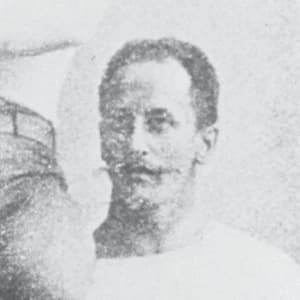Hermann WEINGÄRTNER
Biography
Hermann Weingärtner was one Germany’s best gymnasts of the 19th century, and the best gymnast in Athina in 1896. With the German team, he won two Olympic titles, and added an individual one on the horizontal bar, as well as two second places and a third. His second place in the rings event was a close one: with the jury deadlocked on a decision, Greek Prince Georgios cast the deciding vote in favor of his countryman Ioannis Mitropoulos. Weingärtner’s six medals was the most won by any athlete at the 1896 Olympics, and his three gold medals trailed only his teammate, Carl Schuhmann. After their return home, most team participants were excluded from the reactionary German Gymnastics Association as they were “involved in a sporting event dedicated to internationalism." The winning teams were banned from national competitions in Berlin.
Hermann Weingärtner was a merchant, and later took over management of a swimming pool in Frankfurt am Oder, which had been established by his father. Hermann died in the Oder attempting to save a drowning person. In 1937, his son Erich tried to sell one of his father’s gold medals from 1896 to Joseph Goebbels. This medal was originally a silver winner medal, but Goebbels would only buy a real gold medal that his father had won in 1895 as winner at the Italian Federal Gymnastics Festival. Later Erich was accompanied by the Bild newspaper to present the 1896 medal to Japanese gymnast Yukio Endo who gave Erich Weingärtner a cultured pearl in return.
Olympic Results
Athlete Olympic Results Content
You may like

